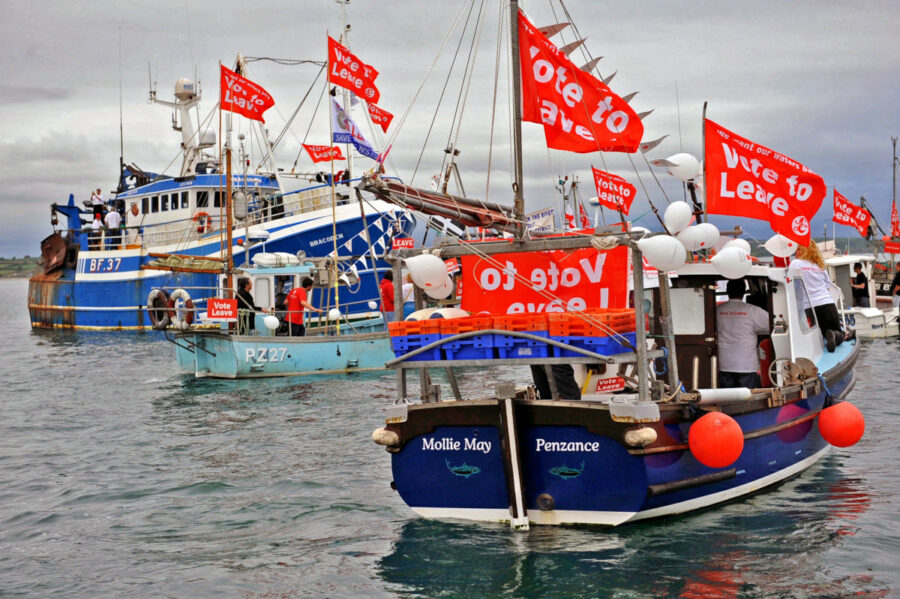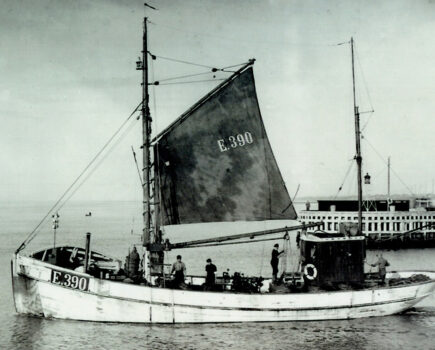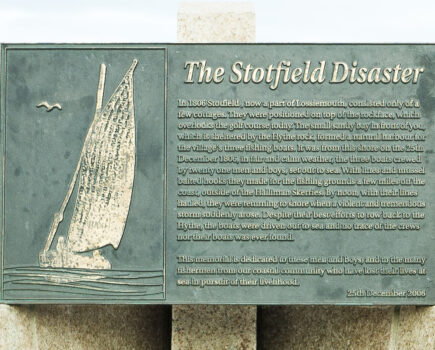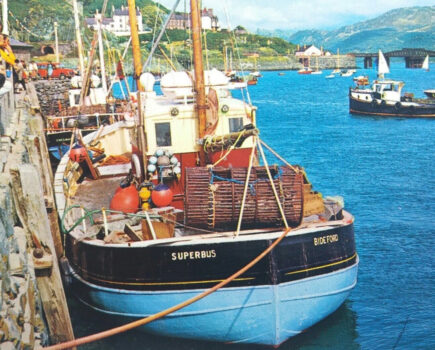Being the most westerly safe haven in England – and having a unique and successful fishing industry – Newlyn in Cornwall could have a brighter future ahead – as long as Brexit doesn’t ruin its markets. Phil Lockley reports
Of both the fish and the shellfish landed to Newlyn, the majority is exported, much to EU countries like Spain and France. Indeed, Newlyn’s prime markets on species like megrim sole are almost entirely in Spain.
Unless Brexit delivers a balanced outcome, Newlyn may face one of its most challenging times. The infrastructure of its fishing industry may be seriously damaged, and its leaders are already showing concern.
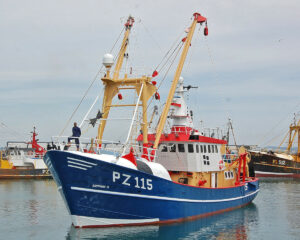
Local netters, beamers and vivier-crabbers berthed on the middle pier at Newlyn.
Equally, they are angry at being the underdog to their counterparts in Brussels, and at watching French boats fish on within 12 miles of the shore, while UK boats are driven back to port with insufficient quota on species like haddock and cod.
Work is ongoing to promote more consumption of Cornish-landed fish within the UK. Hake – once dependent upon demand from Spain – is now so popular that over 70% of the hake landed into Newlyn, where it was the single most valuable species landed in 2018, is now consumed in Britain.
However, hake is only one of over 20 prime species landed in Cornwall, and like it or not, ports like Newlyn depend on export markets. If, post-Brexit, the exports continue without too many hurdles, Newlyn’s wealth will remain – if not, the port may face a huge downturn.
The fearful uncertainty about whether the UK will truly leave the CFP has already put on hold some future plans for further development of Newlyn harbour.
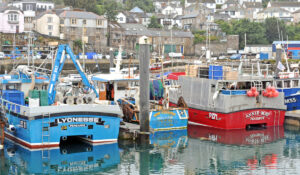
Inshore boats at Newlyn are pinning their hopes on a positive Brexit.
Newlyn fishermen will consider themselves betrayed if the government is unable to secure UK-only access within the 12-mile limit – and fears of this being traded away remain, because the shores of Cornwall are surrounded by the finest fishing opportunities in Europe.
Newlyn’s major player, W Stevenson & Sons Ltd (WS&S) – vessel owner, auctioneer and merchant – may soon be joining forces with one of Cornwall’s largest fish processors, Ocean Fish.
Each company has a fleet of vessels tuned to its own requirements. WS&S has a range of beam trawlers to supply prime species to export markets; Ocean Fish has smaller vessels, sardine ring-netters, scallopers and inshore stern trawlers to address demands from UK markets, including supermarket chains. With a joint understanding of two specialist trades, the port may see expanding markets.
Rumours abound that a second fish auction company may soon be trading at Newlyn, and that Newlyn’s shout auction may be challenged by an electronic auction – a move supported by few, if any, merchants – but no official decision is yet in sight.
Over the past year, fishing from Newlyn and adjacent ports has been quite good, but inshore species like mackerel have taken a serious downturn. The spring run of mackerel – so essential to the small hand-line boats – didn’t take place. As a result, prices paid for hand-line-caught mackerel at Newlyn fishmarket have often soared – more like lottery wins than normal pay-outs.
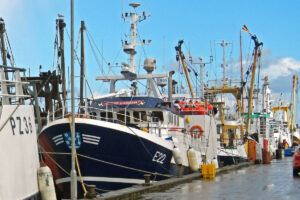
A freshly painted Sapphire II coming alongside to pick up its beam trawls. (Photo: Ian Murray)
Bids of over £6/kg for large/medium mackerel are now a regular occurrence. Many days, merchants who can afford to bid at that level must write off the sale of such mackerel as loss leaders, and hope that the summer shoals will soon return.
Shellfish landings have followed a similar pattern, and the fall in crab landings has forced prices up, with processing firms paying heavily for the raw product and retail sales of hand-picked crab meat being as high as £52/kg.
However, Newlyn shellfish firms like Rowse Fishing Ltd now support a considerable fleet of vivier boats, with a new one under construction, and see future sales of shellfish increasing.
Considering the uncertainty of Brexit, morale among most fishermen in the region is good. In fact, the do-or-die call for a no-deal Brexit remains on the lips of many. What will become of Newlyn by this time next year is not predictable, and to the merchants, that uncertainty is not welcome.

